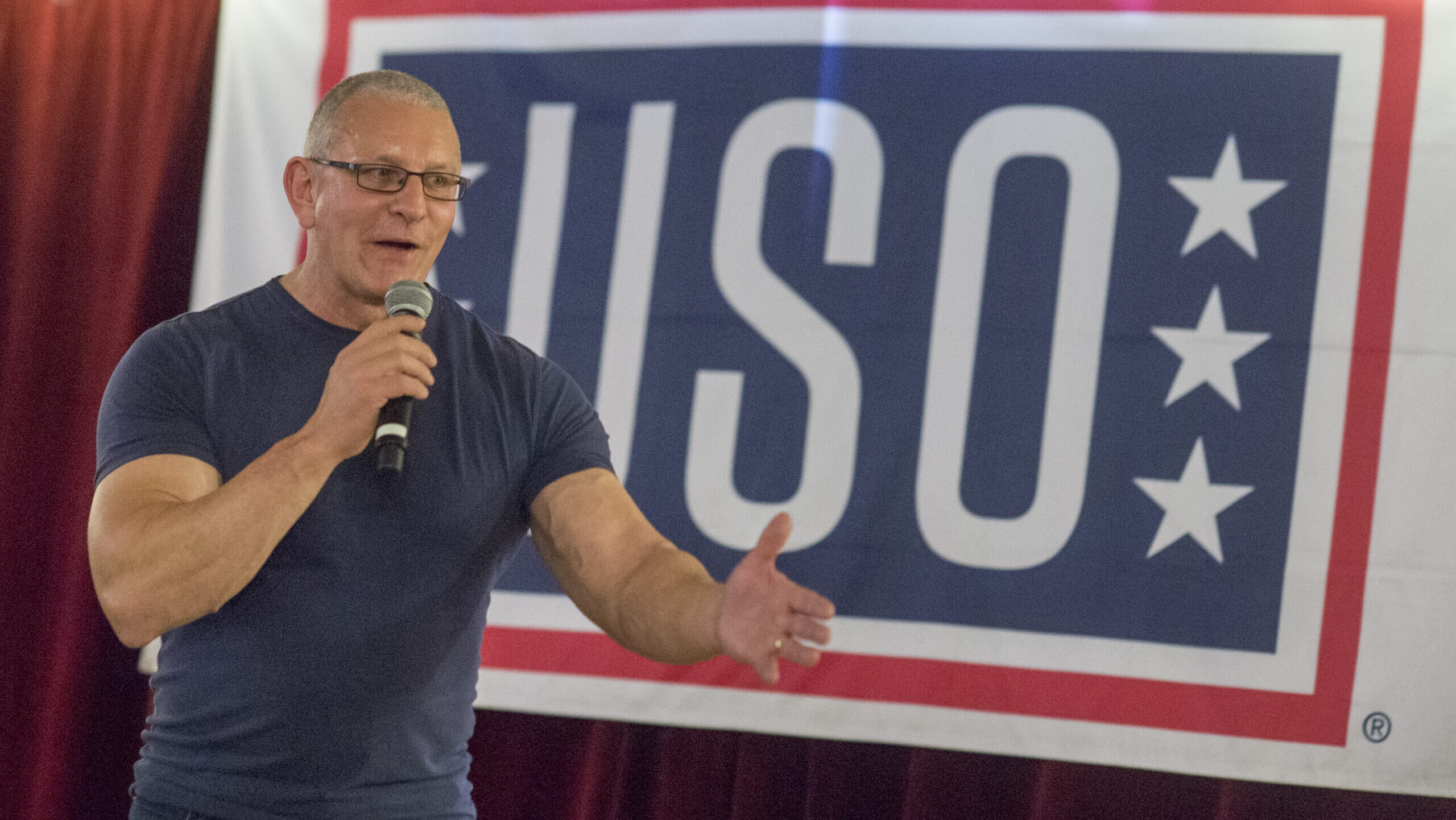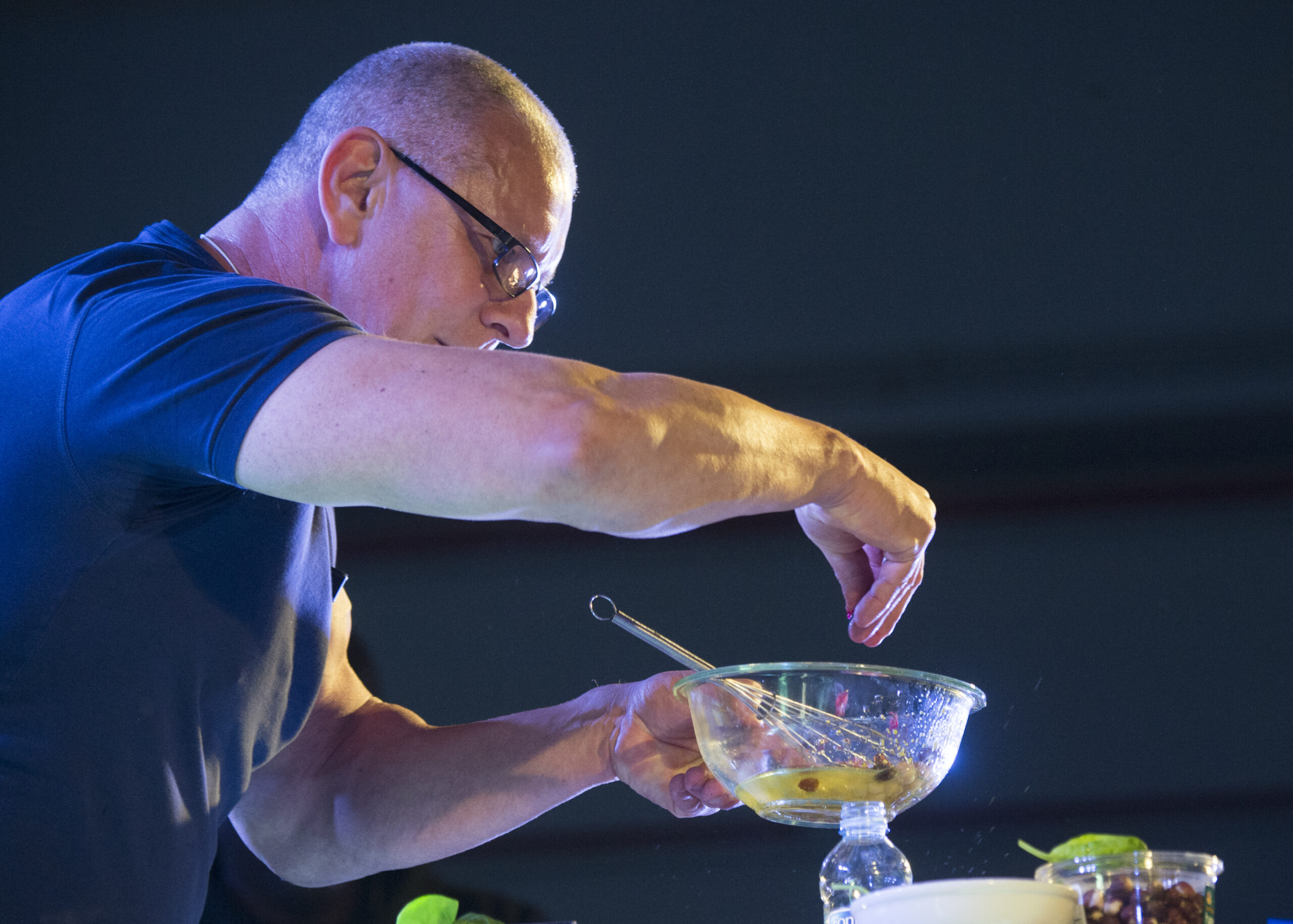For most of his career, Robert Irvine has refused to be outworked.
“I travel 345 days a year,” the celebrity chef, restaurateur, and TV personality told The Food Institute recently. “I use time for filming. I work out at three o’clock in the morning, or four. I go straight to work at seven.
“I work 48 hours straight, once a week, with some meals in between.”
Yes, in Irvine’s mind, even sleep deprivation is a small price to pay for doing what you love.
“What I do is not work to me,” he explained. “I’m here on this Earth because the good Lord put me here to help people.
“I don’t have a job. I have a passion that just happens to make money.”
Despite his unrivaled work ethic, Irvine has learned the value of leaning on coworkers and employees. Whether it’s doing work for the Robert Irvine Foundation or working on TV shows like “Restaurant: Impossible”, Irvine has come to embrace teamwork.
The celebrity chef eventually learned the value of delegating, and of trusting, your employees. Trust, as a matter of fact, is one of the key pillars of Irvine’s leadership philosophy.
Here’s a look at the other pillars to business leadership that Irvine has discovered over the course of his lengthy professional career:
Empathy
It can’t be understated: Any boss must understand where their employees are coming from, what makes them tick, and what prompts their behavior. Irvine calls it “empathetic leadership,” something he learned during his days in the Royal Navy in the U.K.
“Know the people that work for you (may have) an 80-year-old grandmother that fell down the stairs, or an autistic son or daughter,” Irvine said. “Know the people, because when they come to work and you bark at them, you don’t know what’s going on in their life.”
Authenticity
It doesn’t matter if he’s speaking with a production assistant on a Food Network show or a celebrity known worldwide: Irvine tries to treat everyone with equal respect.
“I’d talk to you the way I’d talk to anybody else. I believe in loyalty and integrity,” Irvine explained.
“That’s how I run my business. If my people need time off, take it; as long as it’s covered (by a coworker), I don’t care how much time you take off. So, I think success is about listening … and not reacting, but being proactive.”
Losing Your Ego
Let’s get back to listening for a moment. It’s an invaluable skill, and one that didn’t come naturally to Irvine – who boasts the kind of imposing presence that can end arguments before they start.
“I can tell you, for 10 years I was not a good listener. It was my way and that’s it,” the chef and restaurateur recalled. “I learned to listen, because you get more from listening. And you can help more when you listen to (peoples’) stories.”
“I have chefs on my team that are way better than I will ever be. My team is way smarter than I will ever be,” Irvine said. “I’m just smart enough to surround myself with people that are smarter than me, and aren’t afraid to say ‘Hey, we don’t agree,’ or ‘Hey, we should do this.’”
That, Robert Irvine noted, is called “losing ego” – and it’s served as a key building block that’s led to a memorable, four-decades-long career.
The Food Institute Podcast
Funding sources are drying up and inflation is making it harder and harder for higher-priced food brands to compete – what’s an early-stage food company to do? Dr. James Richardson, owner of Premium Growth Solutions and author of Ramping Your Brand, joined The Food Institute Podcast to discuss what types of food companies are succeeding under current industry dynamics.












